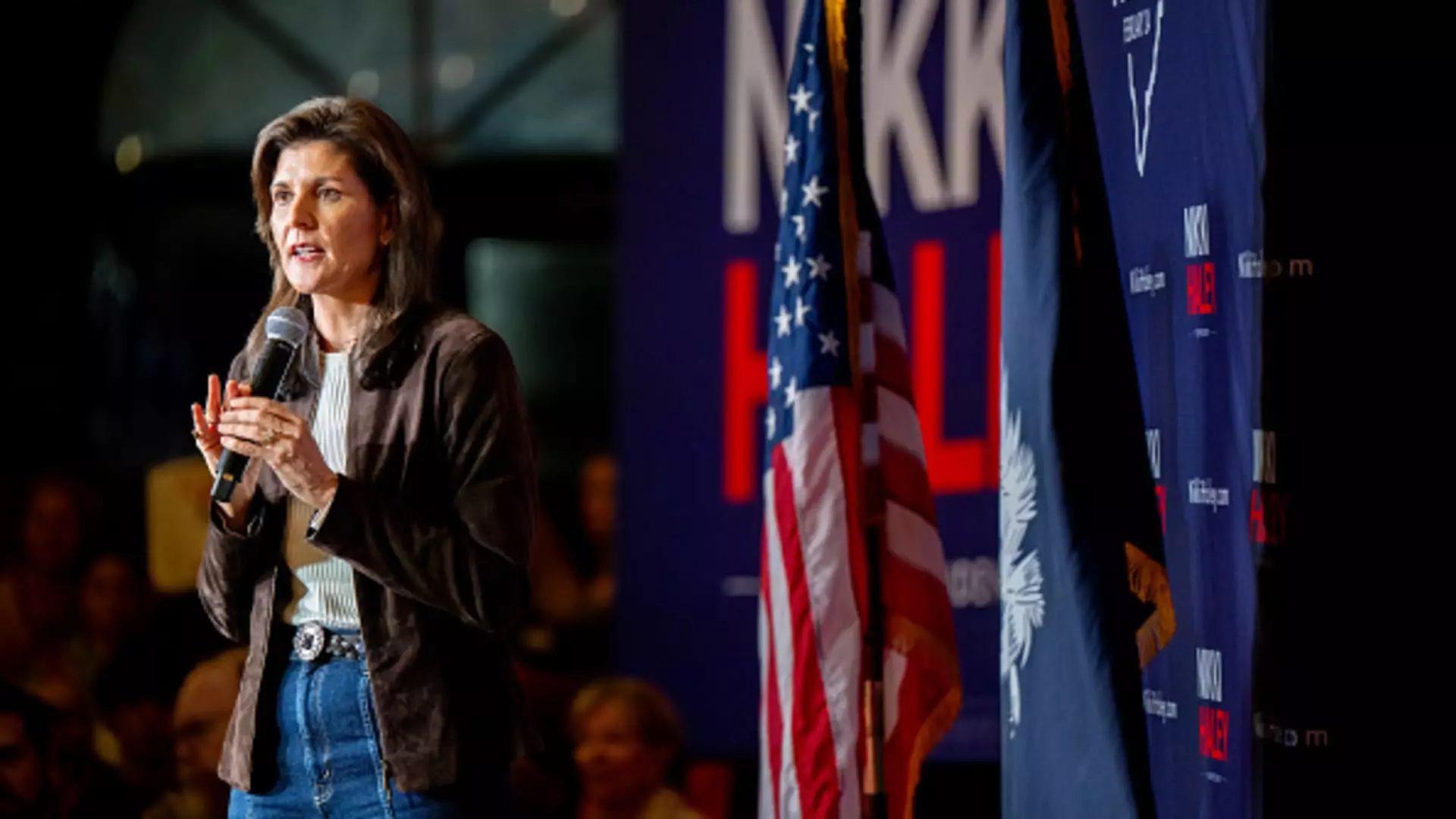Nevada’s Republican Party and its Democratic-controlled state legislature have been at odds over the state’s primary format. In 2021, the legislature enacted a new election law that required primary elections, aiming to move away from the caucus system and increase participation. However, the Nevada Republican Party opposed this change and opted to hold its own caucuses, disregarding the primary. As a result, the state saw two separate Republican contests this week, with the caucus winner being the one to receive delegates towards the nomination.
Former U.N. ambassador Nikki Haley, the sole Republican candidate on the primary ballot, lost to the option of “none of these candidates.” Despite being the only candidate listed, voters still had the choice to express their dissatisfaction with the available options. While Nevada continued to tally votes into the early hours of Wednesday morning, it was clear that Haley did not secure the majority. This outcome reflects the complexity of the primary and the disappointment faced by Haley’s campaign.
Former President Donald Trump, although absent from the ballot, has remained a significant presence in Nevada’s Republican primary. Trump is running virtually unopposed in the caucus, benefiting from his unwavering base of support. The caucus system, favored by Trump, has specific advantages over a statewide primary. Trump’s dominance reinforces the challenges faced by other Republican candidates, making it difficult for them to gain traction. Haley’s campaign manager, Betsy Ankney, expressed concerns about the party-run caucus system, highlighting its bias towards Trump and the significant costs associated with participating.
The Haley campaign has made it clear that Nevada was not their primary focus. Ankney stated that they had not dedicated any resources or attention to the state, emphasizing their belief that the caucus system was rigged in favor of Trump. The campaign’s main strategy has been centered around South Carolina, where Haley served as a governor and hopes to perform well. Despite facing an uphill battle, Haley remains determined to continue her campaign, even if she finishes second in her home state.
As Haley’s electoral path narrows, her campaign has escalated its criticism of Trump. They argue against his suitability to face President Joe Biden in a general election, targeting his age and temperament. The campaign has even released ads labeling Trump as “unhinged” and has accused him of evading debates. These attacks not only showcase Haley’s growing desperation to differentiate herself from Trump but also highlight the intensity of the competition within the Republican primary.
The Republican primary in Nevada has been marked by a rift between the state’s Republican Party and its Democratic-controlled legislature. Nikki Haley’s loss to “none of these candidates” reflects the intricacies of the contest, and the dominance of Trump in the caucus system presents significant challenges for other candidates. Despite the focus on South Carolina, Haley’s campaign has intensified its attacks on Trump, demonstrating the increasing desperation to stand out in a crowded field. The road to the Republican nomination remains uncertain, and candidates must navigate the complexities of the primary process to secure their place in the race against President Joe Biden.


Leave a Reply